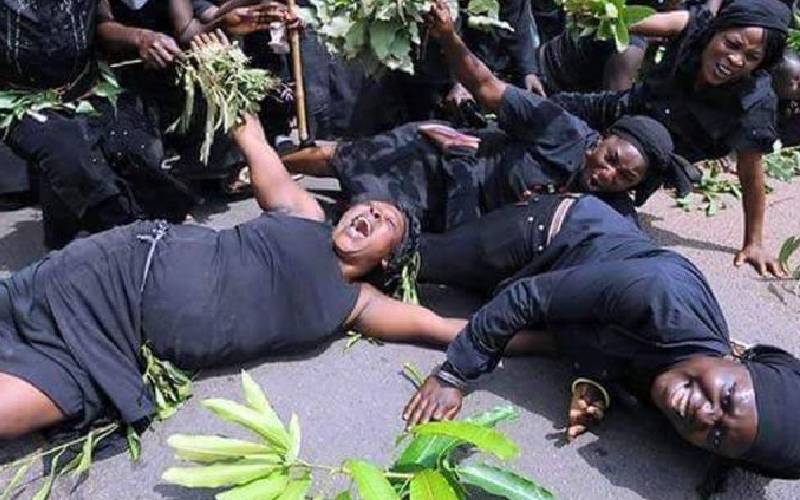×
The Standard e-Paper
Stay Informed, Even Offline

Professional mourners during a past procession. [Courtesy]
Sons who worked away from the villages have contributed to the erosion of Luo funeral rites, elders believe. This has been complicated by changing religious beliefs.